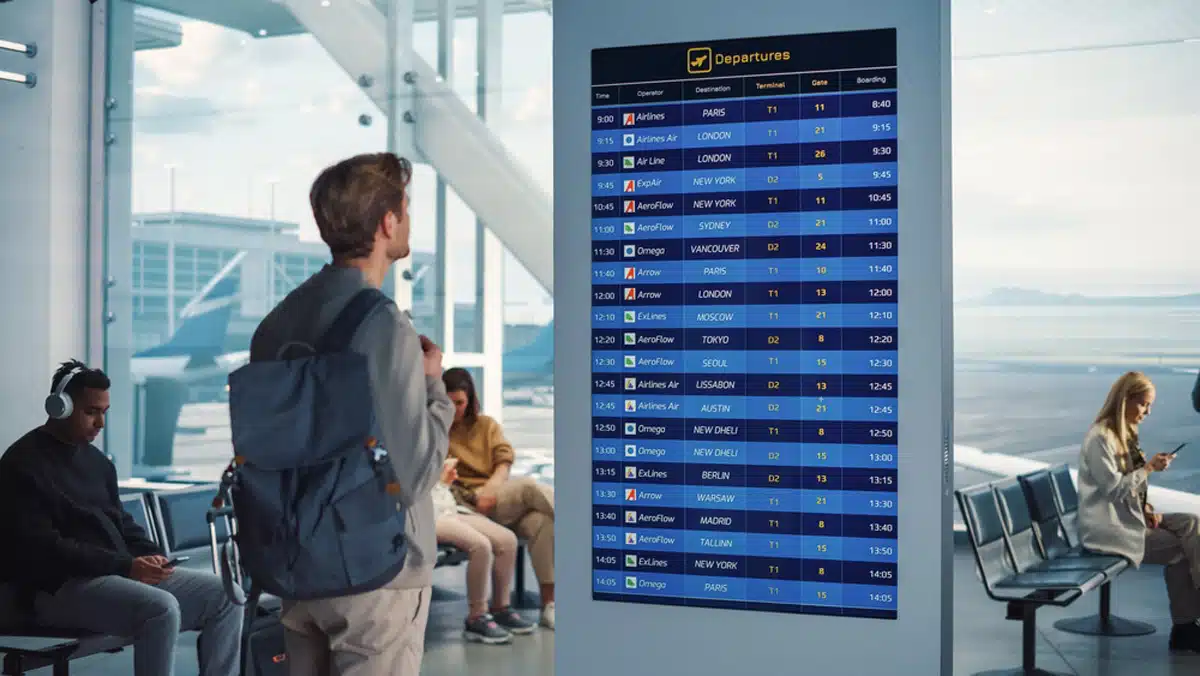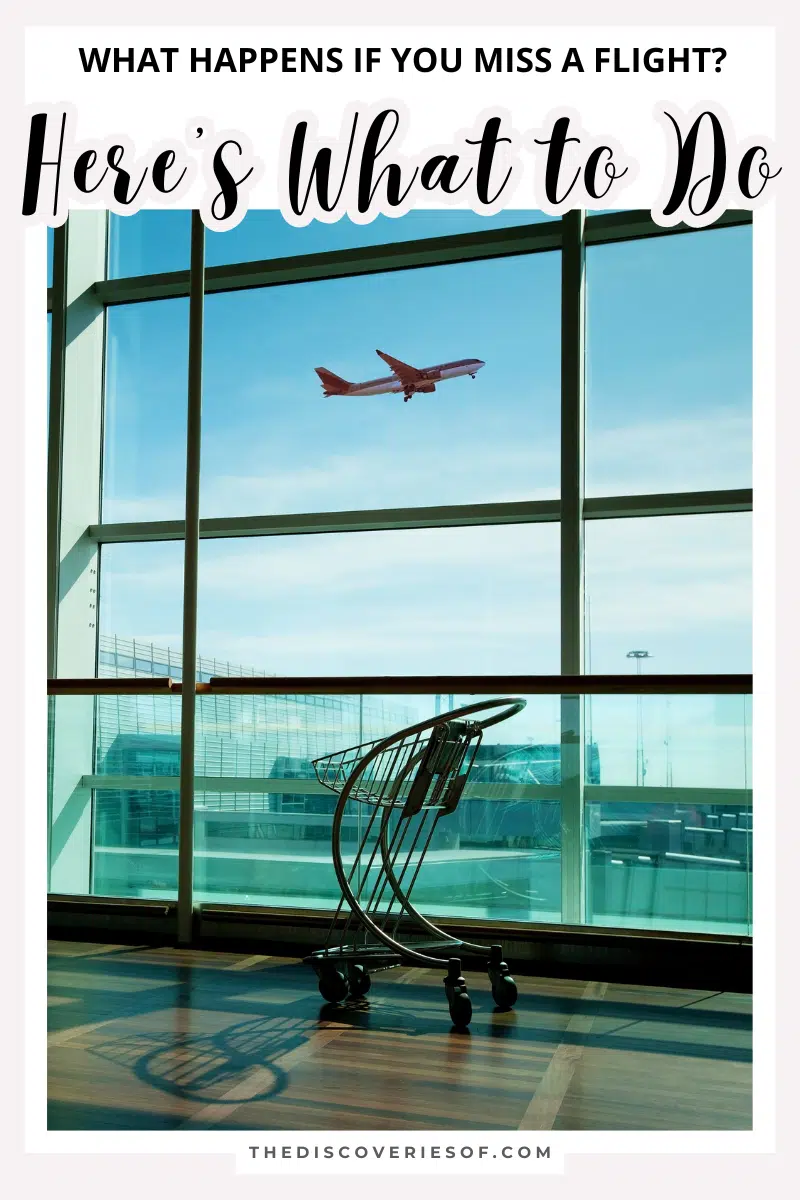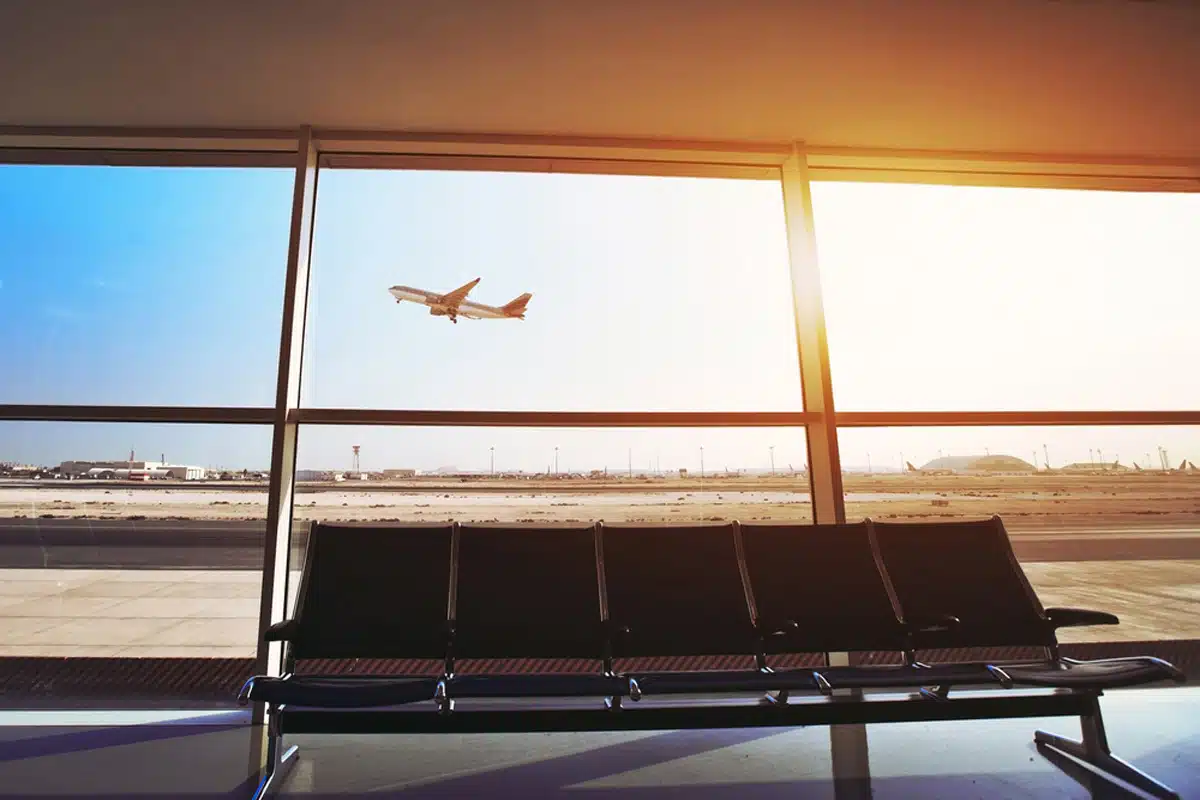Missing a flight is one of the most anxiety-inducing things that can happen when travelling. And while it is an inconvenience, it isn’t the end of the world. If you miss a flight, here’s what happens and, most importantly, my guide to what you should do.
People miss their flights every single day, even the most seasoned and experienced travellers. And I can speak from experience; I’ve missed flights before and it was totally my own fault.
Whether you’re late because of delays out of your control or through cognitive malfunction on your part, missing a flight is enormously stressful and disruptive. Indeed, it can feel like the end of the world.
Trust me on this: no matter how desperate you feel, it’s not the end of the world. If you’re travelling and worrying about what to do if you miss your flight, this guide is for you.
So, breathe deeply, get your notebooks ready and buckle up as I give you my step-by-step guide on what to do if you miss your flight.
Key Actions if You Miss Your Flight
Step 1: Don’t Panic
Realising you’ve missed your flight is terrifying. Whether you arrive at the airport late, find check-in closed, or get to your gate as the plane is taxiing from the terminal, the bottom falls out of your stomach and your heart rate immediately increases.
The body is physiologically programmed to turn to panic when faced with highly stressful circumstances. Adrenalin begins to pump blood around your body faster, your breathing rate increases and the amounts of the stress hormone cortisol rise, making it more challenging to think rationally.
These responses, while totally natural, can only worsen the situation. Calm yourself down by taking yourself somewhere quiet, taking deep breaths, counting to three on the inward breath, and to three as you exhale, and slowly count to ten.
Doing this will help to regulate your breathing and heart rate, reduce cortisol and allow you to think straight.
Step 2: Assess the Situation
Once you’re calm, take stock of the situation. Understand what led you to miss your flight.
Was it an unforeseen traffic jam or train delays? Were queues at the security of passport control longer than expected? Were you unsure where to go to check in? Was there a short-notice gate change for your departure, or were you unaware of where to go?
Once you know why you missed your flight, you can determine your next steps and understand whether you can pursue compensation or potentially claim through your travel insurance.
Step 3: Contact the Airline

It is paramount to contact your airline at the earliest opportunity and inform them of the situation. You can ring their customer service line if you’re not at the airport already, but face-to-face communication at the nearest help desk is best if you are in the building.
If you’re already airside and the gate has closed, the staff do not have the power to stop the plane from departing. You’ll be taken back to the terminal, where airline staff will be able to help.
When you speak to airline staff, several outcomes will be available depending on the reasons for missing the flight.
Firstly, calmly explain that you’ve missed your flight. Provide your name and the flight number and explain the reason for missing the flight.
To help you understand your rights, it’s essential to read and understand the terms and conditions when you buy your ticket to understand what your airline is and isn’t required to do.
If you arrive late at the airport due to traffic jams or public transport delays, you will be deemed at fault and the airline is not required to help. The best possible outcome is to be booked on a later flight, subject to availability and other fees, but you will not be entitled to compensation.
Likewise, if you missed the flight due to queues at security or check-in, your airline will not be held liable, so you will not receive compensation. They should be able to help you rebook, subject to availability and fees.
If you missed a flight due to illness, you can claim a refund, depending on your airline’s policies, travel insurance, and medical documentation proving your illness.
Ask the airline for help with the next steps. Find out when they next have seat availability on your route, ask what fees you’ll be liable to pay, and take notes.
Step 4: Check Your Travel Insurance
Sometimes overlooked by travellers, this is where buying travel insurance can quickly pay rewards.
Travel insurance differs between providers. Most provide some level of cover if you miss your flight based on certain circumstances that your airline will not compensate.
For instance, insurers may accept a claim under the following circumstances:
- Public transport delays
- Road accidents (usually only offered on a dual carriageway or motorway)
- Car breakdowns
- Extreme weather conditions such as blizzards
Meanwhile, the following circumstances are unlikely to be covered:
- Missing an alarm
- Not leaving enough time to get through checks at the airport
- Traffic delays as a result of pre-planned roadworks
- If you refuse alternative flights or airline compensation
This cover may be an additional extra to the standard cover provided by your travel insurance but is well worth the extra cost. Not only will it help you remain calm throughout rearranging your flights, but some policies also cover the cost of overnight accommodation if you cannot get a same-day flight.
Ensure you have your travel insurance policy documents with your airline tickets and other travel documents so you can easily reach them if required.
Step 5: Make Alternative Travel Plans

Once you know where you stand with your airline and travel insurance cover, you can make alternative travel plans. Contact your airline or travel agency to find availability for the next flight. The airline may put you on a reserve list in case of other no-shows, but it might be easier to get a seat on the next flight with availability.
If the airline is not liable for you missing the flight, you will have to pay rebooking costs. At this stage, remaining calm and kind can pay dividends as staff are more likely to try and help you if you’re not showering them with anger.
You may be unable to fly out on the same day with the same airline. In these circumstances, you can look at availability on other airlines flying the same route. Walk to the airport desk to check availability or search online through a third-party agency.
Beware, you will be liable for the full cost of these flights, but if your travel insurance covers your original flights, you won’t be out of pocket in the long term.
Once you’ve got your flights sorted, you’ll feel infinitely calmer.
Step 6: Update Accommodation and Transfers
Now you’ve got your new flight booked, take a deep sigh of relief and get a drink and something to eat before modifying the details for the remainder of your trip.
Think about who you need to contact and what you need to amend. If friends or family are meeting you at the other end, drop them a line to let them know your new arrival time. Likewise, if a tour operator or business associates are meeting you, contact them immediately to give them your updated itinerary details.
Update your accommodation, especially if you’re not arriving on the same day as planned. You may need to pay an additional fee to transfer your arrival date, so be prepared.
Similarly, if you’re hiring a car or have train or bus reservations, contact the providers to transfer any reservations. Again, you may be liable to pay certain fees based on their terms and conditions.
Check your travel insurance to see if you can claim these back, along with any compensation for your missed flights.
Step 7: Learn and Move On
Once you’ve contacted and informed everyone of your changes, take time to reflect on the contributing factors to your missing your flight.
Understand what delayed you from making it to the airport or your departure gate on time and think about how to mitigate these factors in the future.
Some tips to prevent a similar situation in the future include:
- Leaving additional time to allow for unforeseen circumstances delaying you en route to the airport.
- Check-in online 24 hours before your flight to minimise queuing time at the airport.
- Once you’ve checked your baggage in the terminal, head through security as soon as possible in case of long queues. Once you’re airside, the chances of missing your flight are minimal.
- Keep an eye on departure boards and listen for announcements in case of a change of gate.
I find airports great spaces to kill time. Most have great cafes, bars and seating areas where you can sit and wait with a good book, a puzzle book, or just watch a film or series on your iPad. Being one of those people who arrive for their flights with several hours to spare can be beneficial and aid a seamless, stress-free travel experience.
Finally, remember that things outside your control sometimes conspire to mean you miss your flight. Even if you feel responsible, don’t beat yourself up. Bad stuff happens, even to the most prepared travellers. Chalk it up to experience and enjoy your trip!
Read More Practical Travel Tips & Advice
Love This? Save and Share on Pinterest








